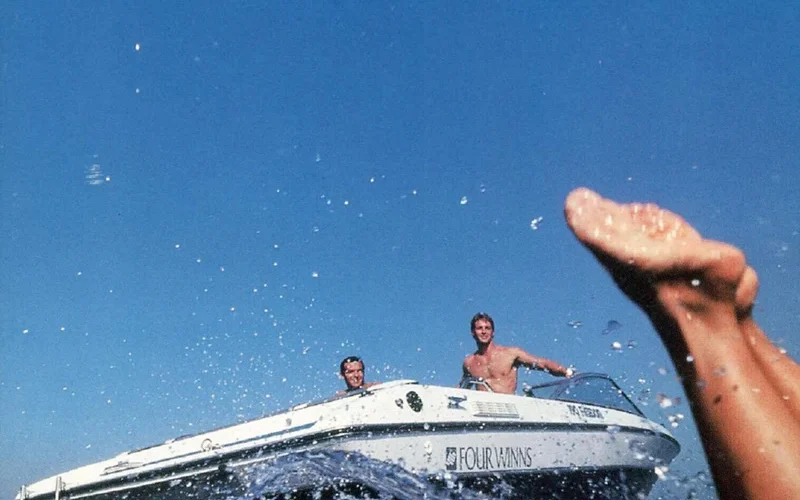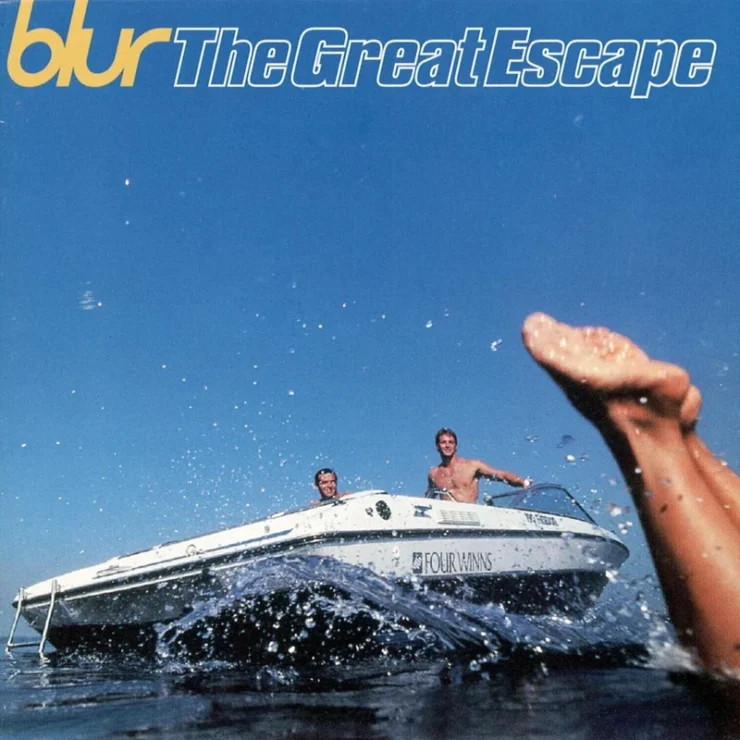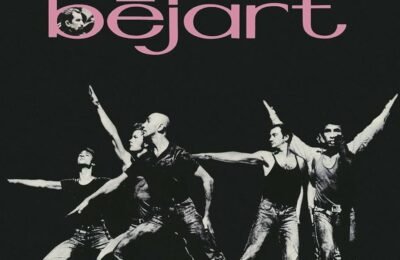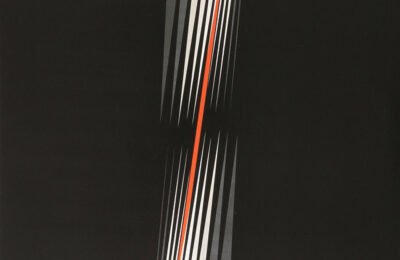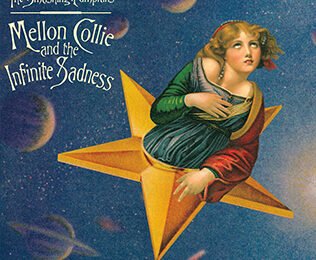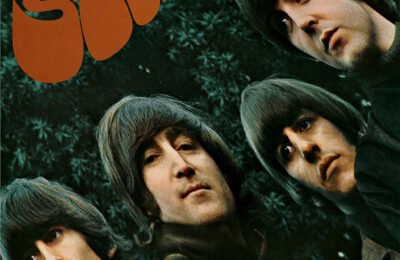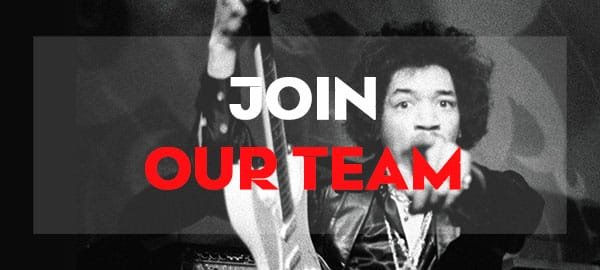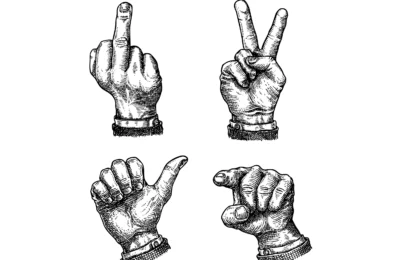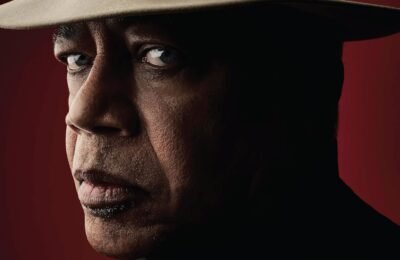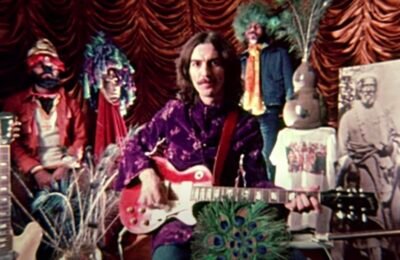September marks the 30th anniversary of The Great Escape: Blur’s fourth studio album and in my opinion, their most underrated project.
Blur
From seeing Oasis a couple of weeks ago, it seemed unfair to forget their fiercest rivals to the Britpop crown. Blur were formed in 1988, initially as a band called Circus. Vocalist Damon Albarn, guitarist Graham Coxon and drummer Dave Rowntree were in the band, and soon recruited bassist Alex James. The band soon changed name to Seymour, before re-branding to Blur at the request of Food Records.
Their first studio album, Leisure, was released in 1991 to anti-climactic success. The follow-up, Modern Life Is Rubbish, did not fare any better in the charts. However, the breakthrough came in 1994 with the release of Parklife. The album became a staple of the Britpop era, with singles like “Girls & Boys” and “Parklife” propelling the group to further fame.
The band were one of two heavyweights in the Britpop scene. Many arguments have arisen from the debate of who is better; Oasis or Blur. Although Oasis have outsold Blur, the battle of Britpop was never fully decided. Blur may have been the more creative of the two in terms of songwriting, and this is showcased fantastically in their fourth album, The Great Escape.
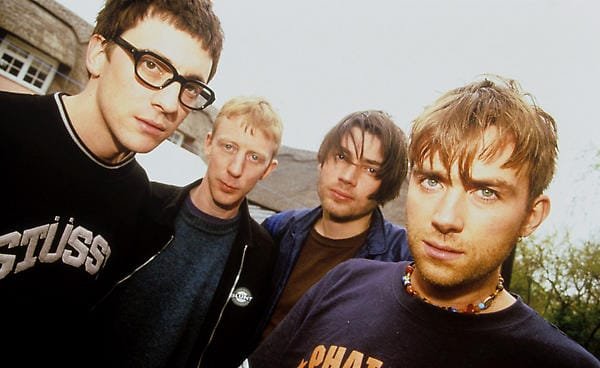
The Great Escape
Following the success of Parklife in 1994, the band were tasked by Food Records for a follow-up. The Great Escape was released in September 1995, following the hugely successful single “Country House”. Released on the same day as Oasis’ “Roll With It”, the Battle of Britpop was alive and well and to much surprise, Blur outsold Oasis, topping the singles charts.
Many Blur fans do not see The Great Escape as one of the band’s best, but I disagree. Although Damon Albarn himself resents the album, admitting “I’ve made two bad records. The first record, which is awful, and The Great Escape, which was messy”. The album may come across a bit messy, unless it is listened to as a concept album. Thematically, it explores detachment and loneliness. In many cases, from the point of view of Albarn himself.

Stereotypes
The album opens with a synth melody that sounds like it’s from a Dracula soundtrack. Damon Albarn’s vocals are inherently British from the offset, his London accent shining through. Thematically it appears to be about a swinging lifestyle, but there’s much more to it. It takes a look at mundane, middle-age life, where the only excitement that can be gained is by swapping sexual partners. The escapism is strongly portrayed in the lyrics, “They’re on the lovers’ sofa, they’re on the patio / And when the fun is over, watch themselves on video”.
“Country House” follows with a bouncy, upbeat instrumental. The themes of mundane living continue, with the song detailing the escapism of moving from the city to a large rural house. While this may sound idyllic, the tedium of life cannot be escaped. This is portrayed wonderfully in the lyrics, “He’s reading Balzac and knocking back Prozac / It’s a helping hand that makes you feel wonderfully bland”. Instrumentally, it’s brilliant again. The melody is infectious and features Coxon on saxophone, adding layers to the rhythm.
Filtered drums and a melancholic guitar open “Best Days”. Once again, the lyrical themes feature elements of displeasure with one’s life. It paints a wonderful picture of the working class in London, with the likes of “Cabbie has his mind on a fare to the sun / He works nights but it’s not much fun”. The chorus picks up the energy a bit, creating a floating sound. The piano in the instrumental break is plucky, but the wearisome Albarn reiterates that the day-to-day rut are “the best days of our lives”.
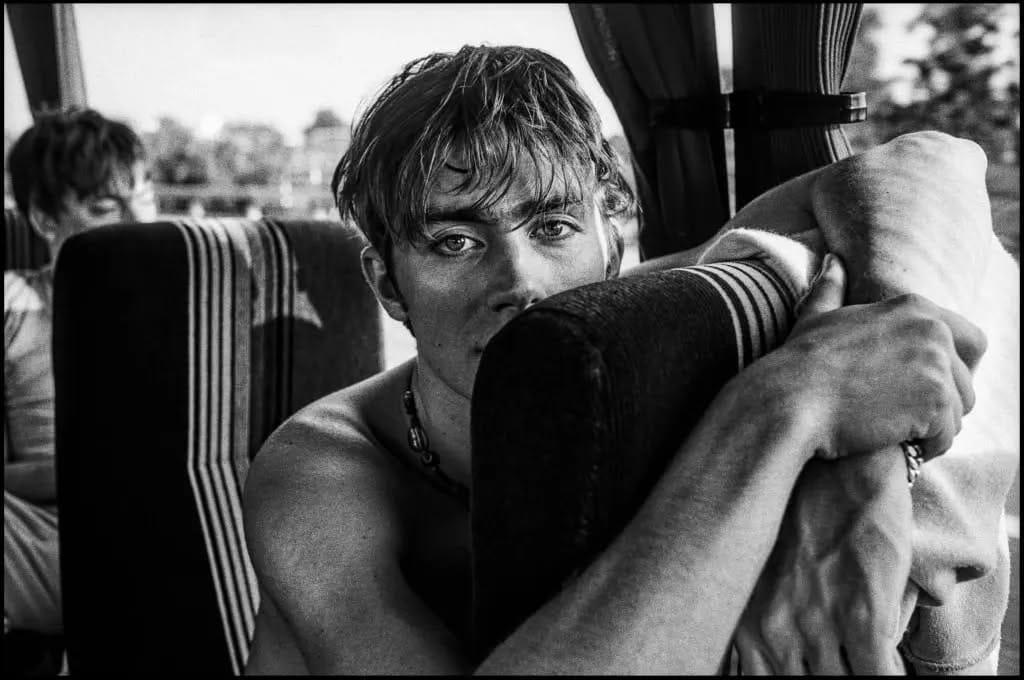
Charmless Man
The album picks up the pace again with “Charmless Man”. A song that is lyrically brilliant, it’s all about a snotty upper class individual. There are so many clever lyrics in the song, “Educated the expensive way / He knows his Clairet from his Beaujolais”. Accompanying the lyrics are some of the finest instrumentals in the album. Rowntree’s drums are on point, as is the bass. The guitar is strong from the start, but has so many snippets of beautiful riffs. Even the vocal delivery is stuck up; there is a sarcastic tone throughout. Even in the refrain, Albarn explains the nonsense spewing from this unlikable individual; “He went na-na-na-na-na-na-na”.
“Fade Away” sees a lyrical return to the monotony of life, this time using an example of newlyweds. The story sees the couple settling in a town “with people from the same backgrounds” and the defeatism is repeated in the chorus; “He’s not making plans, ’cause now he understands”. The instrumental reflects the scenario perfectly. The melody is repetitive, the trumpet plays a lulling lilt and the drums provide the infrequent excitement they experience. The synths that open the song even sound suburban.
The contempt continues in “Top Man”, which appears to be a tongue-in-cheek song about the modern youth. Lyrically it addresses monotony with a certain group of young people, making remarks about how they all dress the same. “In a crowd it’s hard to spot him, but anonymity can cost / It’s never cheap or cheerful, he’s Hugo and he’s Boss” is a perfect encapsulation of it. The song is the original “Deanomania“.
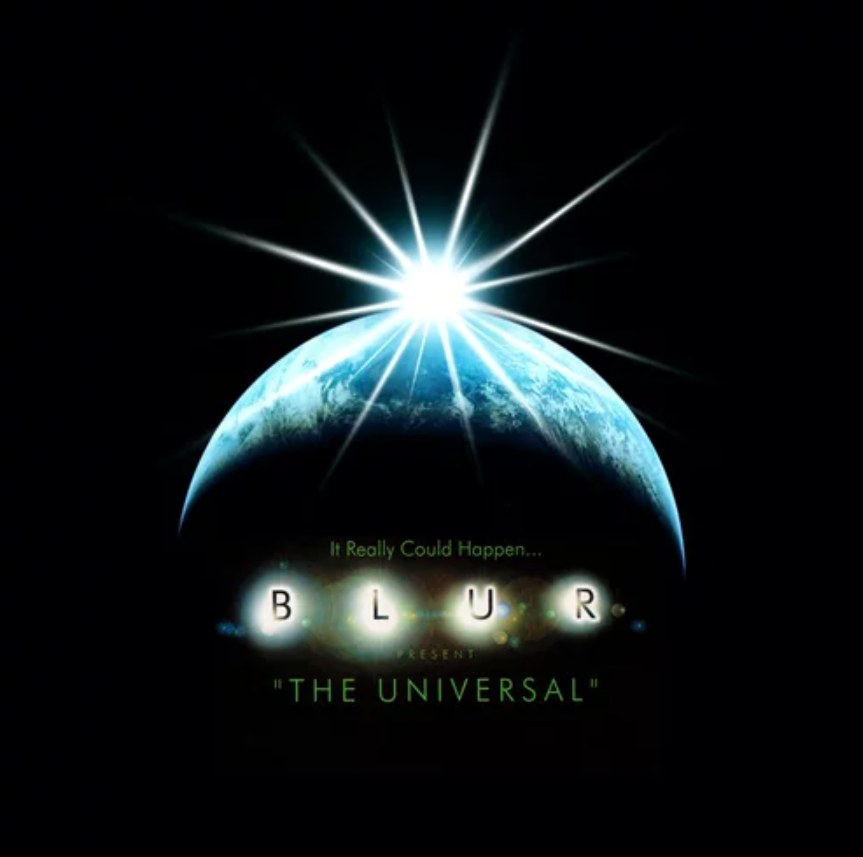
The Universal
A beautiful string section opens “The Universal”, one of the most audibly pleasurable instrumentals in existence. The backline to the track is incredibly strong, with the quartet accompanied by strings, brass and a choir section. Huge credits are owed to Coxon, whose guitar shines through with the strings in mesmerising fashion. Thematically, it’s a break from the concept of monotony. There’s a huge sci-fi element to the track, which is best portrayed in the single cover acting as a homage to Kubrick’s 2001: A Space Odyssey. Even lyrically, the lines “No one here is alone / Satellites in every home” feels borrowed from Orwell’s 1984.
“Mr. Robinson’s Quango” was the first song recorded for the album, which makes it feel like an outtake from Parklife. It’s anything but an outtake however, the song is a brilliant criticism of right-wing bureaucrats. The theme is semi-obvious from the title, but reaffirmed superbly in the lyrics; “Yeah, he’s the self-professed saviour of the dim right wing / He got respiratory problems and a Mason’s ring”. The saxophone is present again giving more layers to the instrumentals, and the bass guitar grooves so well with it.
“He Thought of Cars” returns to lyrical themes of escapism. Albarn paints imagery of the misery of an unknown man experiencing a mundane life and wanting to escape. The person, thinking of cars and planes, has nowhere to go and has no one to go to. The song is moody throughout, even in the “la-la-la” refrain.
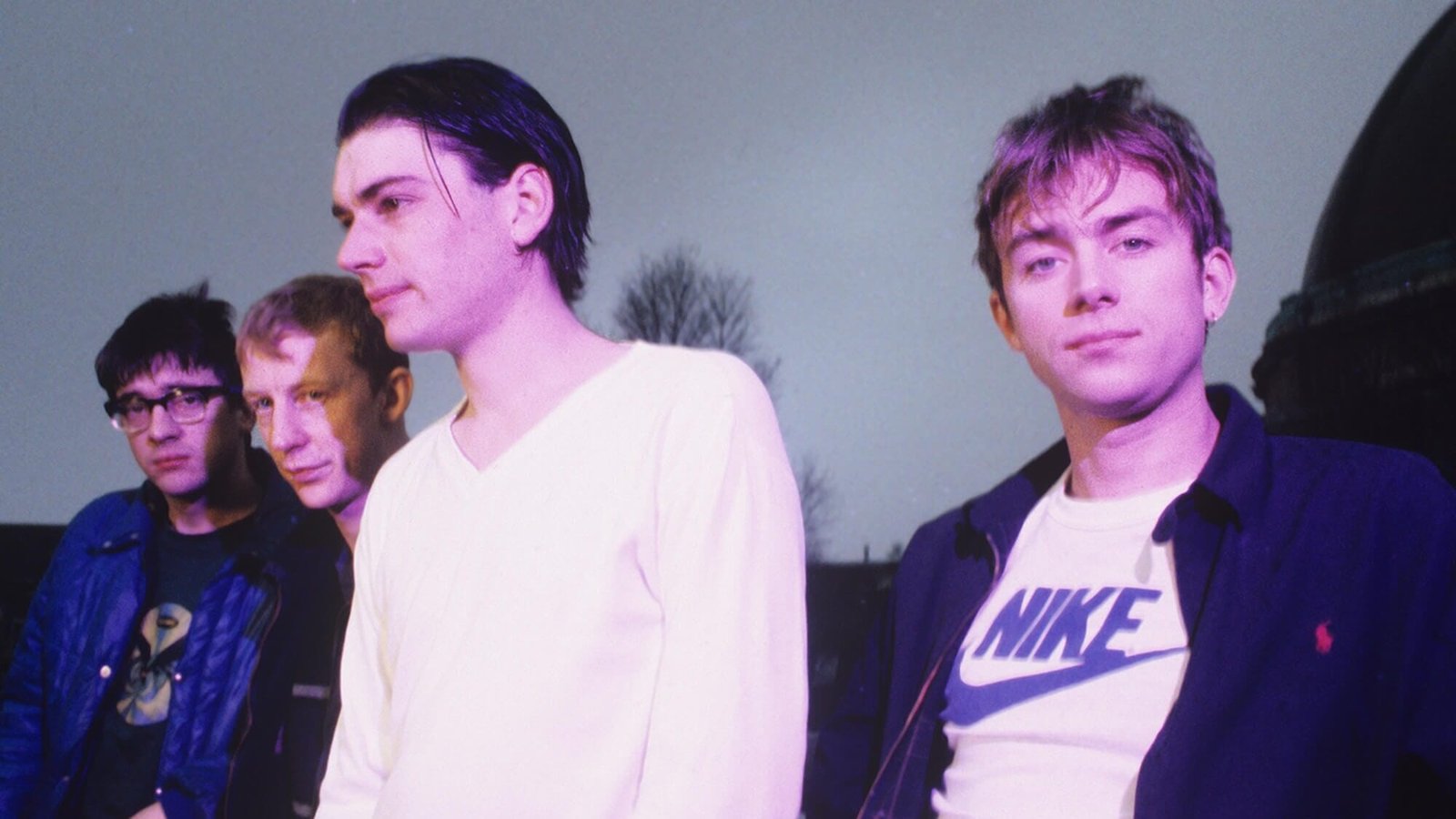
It Could Be You
“It Could Be You” opens with another jaunty guitar riff, providing respite from the moody songs on the album. The upbeat elements are reflected in the lyrics, which are all about the National Lottery. There is a slightly darker meaning however, the lines “All we want is to be happy / In our homes like happy families”, is a satirical jeer about those who believe they need money to be happy. Even the song title is named after the slogan used by the National Lottery.
A return to themes of mundanity, “Ernold Same” captures this commentary better than any other track on the album. The narration at the beginning is provided by former London mayor Ken Livingstone, which details the mundane life of the title character. The instrumentals provide a painting of the background to this character, an ambient, harmless life.
The rock elements are awoken again in “Globe Alone”. A fast-paced track with the finest percussive performance on the album. Albarn is ferocious in his delivery and the guitars match the speed making the whole song that bit intense. Lyrically, it paints a picture of yet another protagonist. This time, the individual is obsessed with material things; “He is because he saw it on a commercial break / And if he doesn’t get what he wants then he gets a headache”. Focusing on all these material items made the person isolated from the rest of the world, leaving him on the globe alone.
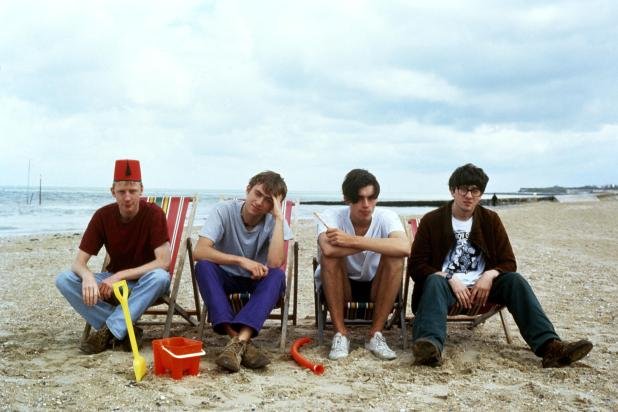
Dan Abnormal
The title of this track is an anagram for Damon Albarn himself. It paints an image of Damon as normal as the listener, but again has inserts of loneliness and commercially-obsessed people also. The guitar is superb here again and it’s supported by synths that have such an eerie, sci-fi tone.
Another glimpse into people’s so-called “normal” lives is provided in “Entertain Me”. The song summarises the entire premise of the album, with most people not appreciating art but instead living to consume. The bridge features burning satire to those same people, “A car, a house, both in a street / The boredom of a sober week / The weekend’s here, hip-hip-hooray / To make the blues just go away”. A stand-out feature of the song is the snare, which pierces through with every hit. One could even interpret this as excitement trying to burst out of a mundane lifestyle.
The closing track, “Yuko and Hiro”, opens with a drum machine and synths. Given that the song is about “salarymen”, the opening instrumental is incredibly boring and plain. This works tremendously with the theme, but there is more to it. As the instrumentals open up, so does the insight into our protagonist’s life. They are living for the weekend, “From Monday to Saturday, I go to my workplace / But on Sunday we’re together, Yuko & Hiro”. There is an extended play of the “Ernold Same” instrumental which closes the album, once again reiterating the themes of mundanity and suburban sameness.
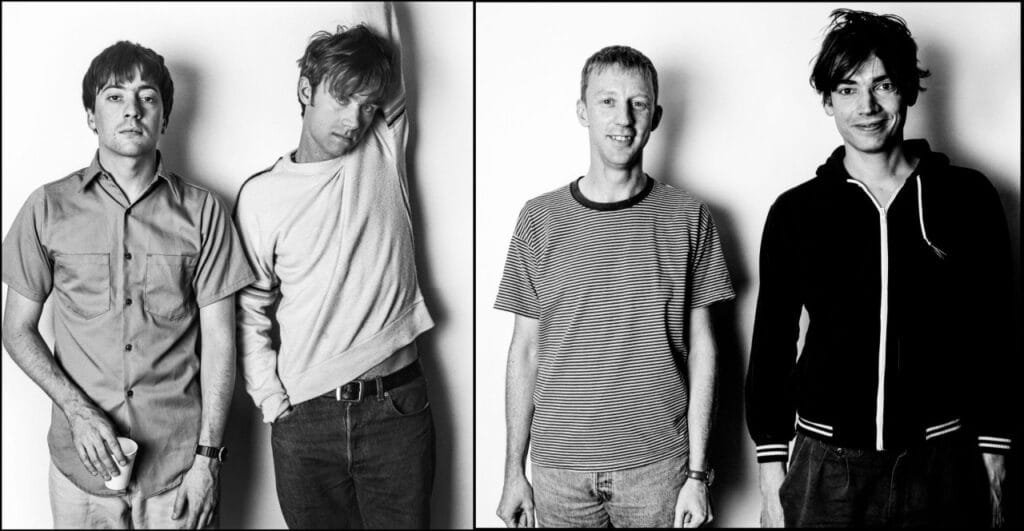
Final Thoughts
Although Damon Albarn has gone on to criticise this album, I disagree with him strongly. Personally, I believe it’s everything but messy. Yes, there may be one or two “filler tracks” in the album, but I think they add to the album thematically. The concept of mundane lives and sameness is portrayed wonderfully with a range of fictional characters who can be interpreted as someone we know. Maybe even ourselves.
As far as I’m concerned, The Great Escape is one of Blur’s finest albums. The range of instrumentals and vocal performances throughout have made it one of my favourites from the Britpop era. Although that battle may have ceased, this album has certainly helped Blur stake their claim to the crown.
